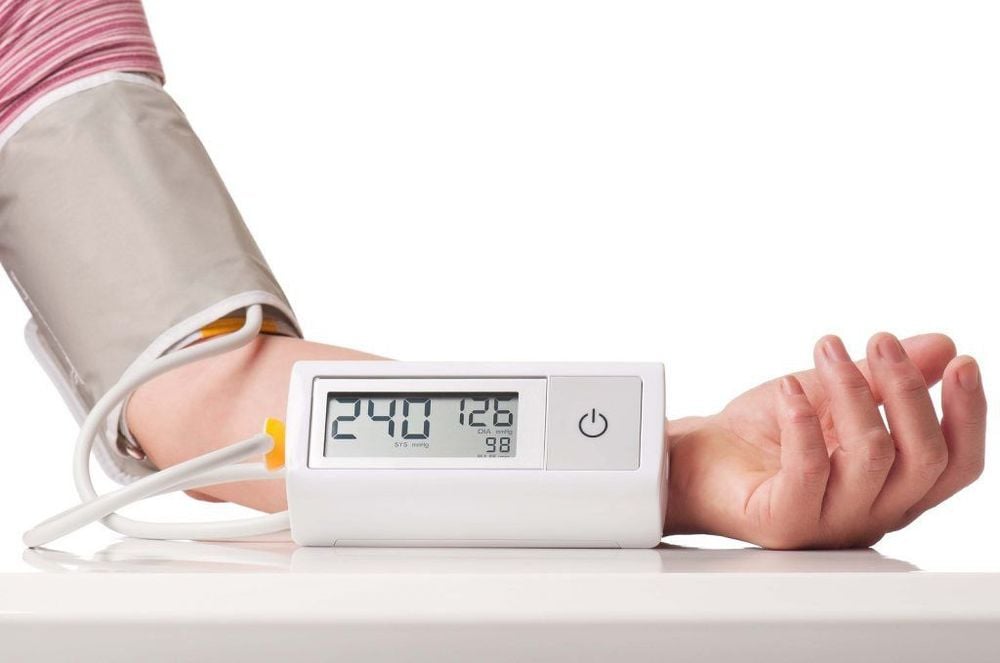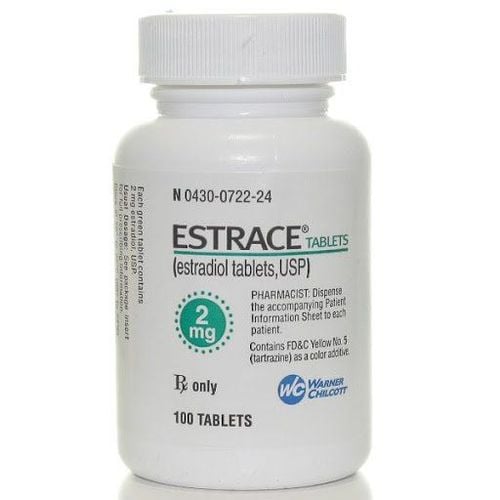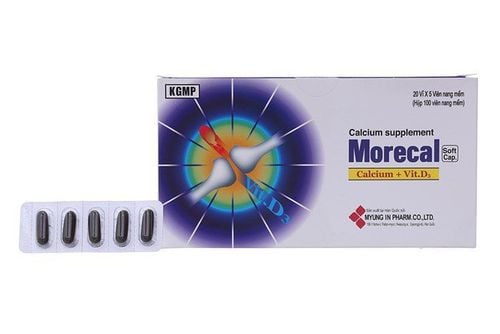This is an automatically translated article.
Duavee is a prescription medication that contains a mixture of estrogen and bazedoxifene. Duavee is effective in improving moderate to severe hot flashes during menopause in women entering middle age. Since the ovaries normally stop producing estrogen in women between the ages of 45 and 55, the drop in estrogen levels in the body causes unpleasant symptoms during menopause. Accordingly, actively supplementing with estrogen can help women feel more comfortable during this period.
1. What is the effect of Duavee?
Duavee is a combination of two ingredients including estrogen and bazedoxifene. Duavee is indicated in women for the treatment of moderate to severe hot flashes associated with perimenopause and menopause. At the same time, Duavee is also used for the prevention of postmenopausal osteoporosis.
When prescribing Duavee for the prevention of postmenopausal osteoporosis, this therapy should only be considered for women at significant risk of osteoporosis and consideration should be given to initiating non-estrogen therapy first.
Because of the exogenous hormone component, Duavee should be used for the shortest period of time consistent with treatment goals and individual risk considerations for each woman. Postmenopausal women should be periodically evaluated clinically to determine whether continued treatment with Duavee is necessary.
2. How to use Duavee?
Duavee is presented as a pink, oval, biconvex, tablet with an estroge n/bazedoxifene content of 0.45 mg/20 mg. The drug is taken orally, once daily, regardless of meals. The tablet should be swallowed whole, without chewing, crushing or breaking the structure of the tablet.
The recommended dosage in all cases is one Duavee pill per day. For indications of Duavee for the prevention of postmenopausal osteoporosis, a woman should be advised to include vitamin D and calcium in her diet or as a supplement if daily intake is inadequate. If a dose of Duavee is missed, the patient should take it as soon as he or she remembers unless it is almost time for the next dose. However, do not arbitrarily double the dose.

Người bệnh cần sử dụng thuốc Duavee theo đúng hướng dẫn
3. Contraindications when taking Duavee
Duavee is contraindicated in women with any of the following conditions:
Undiagnosed abnormal uterine bleeding Known, suspected, or history of breast cancer Known or suspected neoplasm estrogen dependence Active deep vein thrombosis, pulmonary embolism, or history of these conditions Active thromboembolic disease (eg, stroke, myocardial infarction) or history of history of hypersensitivity (eg, anaphylaxis, angioedema) to estrogen, bazedoxifene or any ingredient of the drug known protein C, protein S or antithrombin deficiency or coagulation disorders other blood Liver or kidney failure Pregnancy
4. Things to keep in mind when taking Duavee
4.1 Medicines containing Progestin, Estrogen or Estrogen agonists/antagonists Since Duavee contains conjugated estrogens and bazedoxifene, an estrogen agonist, antagonist, women taking this medicine should not take additional progestin, estrogen supplements or other estrogen agonist/antagonist. Excess estrogen will cause endocrine disorders and adverse metabolism in the body.
4.2 Cardiovascular dysfunction Estrogen agonists/antagonists, including bazedoxifene and estrogen, will increase the risk of venous thrombosis of the lower extremities. An increased risk of stroke and venous thrombosis has been reported with estrogen alone treatment. If a woman has any suspected factors that increase the likelihood of venous thromboembolism, Duavee should be discontinued immediately.
Risk factors for arterial vascular disease (eg, hypertension, diabetes mellitus, tobacco use, hypercholesterolemia, and obesity) or venous thromboembolism (eg, personal history, family history of hypercoagulable disease, obesity and systemic lupus erythematosus) should be appropriately monitored during Duavee administration.
4.3 Malignant tumors An increased risk of endometrial cancer, ovarian cancer has been reported with exogenous estrogen therapy approximately 2 to 12 times higher than in nonusers, depending on the duration of the treatment. duration of treatment and dose of estrogen. Even so, the risk of endometrial cancer has been shown to remain for at least 8 to 15 years after stopping estrogen therapy.
The use of estrogen alone has been reported to lead to an increase in abnormal mammograms that are suggestive of breast cancer. Accordingly, all women should have annual breast exams and monthly breast self-exams during treatment with Duavee.
4.4 Gallbladder disease The risk of gallbladder disease requiring surgery in postmenopausal women on treatment with exogenous estrogens has been reported to be 2- to 4-fold.
4.5 Visual Abnormalities Patients taking estrogen have been reported to have increased retinal vascular thrombosis. Discontinue medication while awaiting examination if sudden partial or complete loss of vision, double vision or migraine occurs. If papilledema or retinal vascular damage is found on examination, Duavee should be permanently discontinued.
4.6 Hypertension In the few cases reported in women taking estrogens, significant increases in blood pressure have been attributed to estrogen-specific reactions.

Thuốc Duavee có thể khiến huyết áp phụ nữ tăng cao
4.7 Hypertriglyceridemia In women with pre-existing hypertriglyceridemia, estrogen therapy may increase plasma triglycerides leading to acute pancreatitis. At this time, patients need to stop taking Duavee if they have pancreatitis.
4.8 Hypothyroidism Use of estrogen leads to increased levels of thyroid-binding globulin. Women with normal thyroid function can compensate for increased globulin levels by producing more thyroid hormone, thereby maintaining serum levels of free T4 and free T3 in the normal range. In contrast, women who are dependent on thyroid hormone replacement therapy may need an increased dose of thyroid replacement therapy if estrogen supplementation is available. At the same time, thyroid function monitoring tests should be performed periodically to maintain the level of free thyroid hormone within the therapeutic range.
In summary, Duavee is used during perimenopause and menopause in middle-aged women to reduce moderate to severe hot flashes and to help reduce the risk of severe disease progression. Osteoporosis. However, because of the risk of adverse symptoms when supplementing with exogenous hormones, patients should be prescribed Duavee when absolutely necessary, as well as perform periodic examinations and follow-up tests, to ensure both effective treatment and patient safety.
In order for the drug to be beneficial during use, the patient should strictly follow the drug use rules and if there are any problems, they should contact the doctor, pharmacist for in-depth advice.
Regularly visit the website of Vinmec International General Hospital to get more information and to share questions to receive in-depth advice from doctors and experts.
Please dial HOTLINE for more information or register for an appointment HERE. Download MyVinmec app to make appointments faster and to manage your bookings easily.
Reference source: labeling.pfizer.com - pfizermedicalinformation.com












